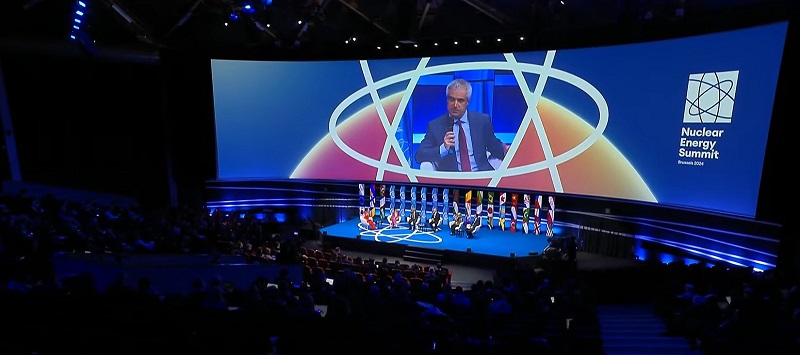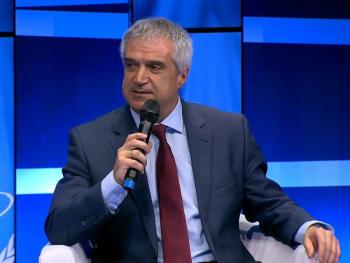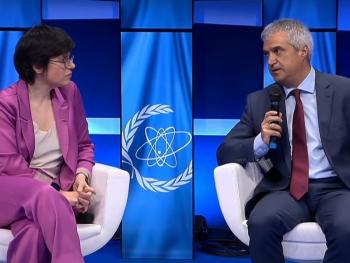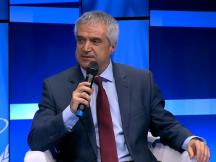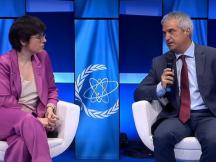Bulgaria relies on nuclear energy as a base source of energy
That is what Energy Minister Rumen Radev said at the first Nuclear Energy Summit in Brussels
Bulgaria's main challenge in the path to energy transformation is the gradual replacement of coal energy. Another baseline energy source is needed to replace successfully fossil fuels. According to our vision, this is nuclear power, Bulgarian Energy Minister Rumen Radev stated at the first Nuclear Energy Summit held in Brussels on 21 March 2024. He explained the reason why our country turned to nuclear energy, namely that Bulgaria has over 50 years of proven experience in the operation of nuclear facilities, in compliance with the highest safety standards. Minister Radev added that our country aims at doubling its nuclear capacity by 2035, together with other energy priorities such as the large-scale grid expansion and electricity interconnection, both at local level and with our neighbours and friends from Romania, Greece, the Western Balkans, Türkiye and the entire Black Sea region.
Minister Radev underlined that our country has available huge hydropower potential as well, and to that base capacity structure, it would be best to incorporate renewable energy.
The Belgian Government and the International Atomic Energy Agency jointly hosted the Nuclear Summit. Co-chairs of the forum were Belgian Prime Minister Alexander de Croo and IAEA Director General Rafael Mariano Grossi.
This international forum focused exclusively on the subject of nuclear power and nuclear energy. It follows the historic inclusion of nuclear energy in the Global Review agreed at the 28th UN Climate Change Conference (COP28) held in Dubai in December 2023, which called for accelerated deployment of nuclear energy along with other low carbon energy sources.
The Bulgarian delegation was led by Prime Minister Nikolai Denkov, who highlighted in his speech the important role of nuclear energy in guaranteeing national, regional and global energy security. He also recalled that Bulgaria has many proven years of experience in the safe and secure operation of a nuclear power plant as well as in the decommissioning of nuclear units. Further emphasis was put on the investment in a new generation of nuclear technologies and diversification as a cornerstone of Bulgaria’s energy strategy.
In addition, the Nuclear Energy Summit issued a Joint Declaration reaffirming the commitment to make nuclear energy a key component of the overall strategy for reducing carbon emissions, ensuring energy security, increasing energy flexibility and promoting the long-term sustainable development of the clean energy transition. The Declaration underlines the need to create the right conditions to support and finance competitively the construction of new nuclear capacities and extend the lifetime of the existing ones. Leaders agreed that more efforts are required to mobilize public funding and explore opportunities to raise private capital, and called on international organisations and institutions to support the conditions for the development of nuclear energy.
The aim of the Summit was to bring together heads of states or governments from around the world to highlight the key role of nuclear energy in reducing the use of fossil fuels, in increasing energy security and stimulating economic development, including through national plans to exploit in full the potential of nuclear energy. The event sent a strong united message to the international community on the importance of nuclear energy and nuclear technologies as a means of combating climate change and achieving climate neutrality goals.
European Nuclear Alliance Leader’s declaration

